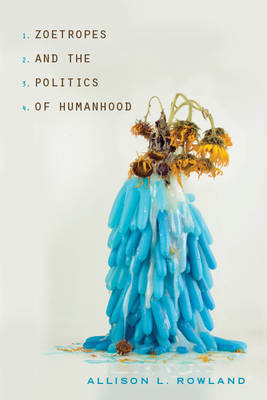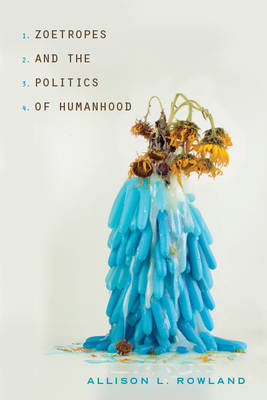
- Afhalen na 1 uur in een winkel met voorraad
- Gratis thuislevering in België vanaf € 30
- Ruim aanbod met 7 miljoen producten
- Afhalen na 1 uur in een winkel met voorraad
- Gratis thuislevering in België vanaf € 30
- Ruim aanbod met 7 miljoen producten
Zoeken
Omschrijving
Winner, 2021 Association for the Rhetoric of Science, Technology, and Medicine Book Award Honorable Mention, Marie Hochmuth Nichols Award for Outstanding Published Scholarship in Public Address, 2021Honorable Mention, 2021 Rhetoric Society of America Book Award The way we talk about living beings can raise or lower their perceived value. Consider the pro-life strategy of calling a fetus a child, thereby effectively promoting the value of fetal life. In the opposite direction, calling a Pakistani child killed by a US drone strike collateral damage can implicitly demote the value of that child's life. Allison L. Rowland's Zoetropes and the Politics of Humanhood looks at such discursive practices--providing the first systematic account of how transvaluations like these operate in public discourse and lurk at the edges of all language. Building on the necropolitical concept that we are constantly parsing populations into worthy lives, subhuman lives, and lives sentenced to death, Rowland's study focuses specifically at zoetropes--the rhetorical devices and figures that result in such transvaluations. Through a series of case studies, including microbial life (at the American Gut Project), fetal life (at the National Memorial for the Unborn), and vital human life (at two of the nation's premier fitness centers)--and in conversation with cutting-edge theories of race, gender, sexuality, and disability--this book brings to light the discursive practices that set the terms for inclusion into humanhood and make us who we are.
Specificaties
Betrokkenen
- Auteur(s):
- Uitgeverij:
Inhoud
- Aantal bladzijden:
- 190
- Taal:
- Engels
- Reeks:
Eigenschappen
- Productcode (EAN):
- 9780814255827
- Verschijningsdatum:
- 28/04/2020
- Uitvoering:
- Paperback
- Formaat:
- Trade paperback (VS)
- Afmetingen:
- 152 mm x 229 mm
- Gewicht:
- 294 g

Alleen bij Standaard Boekhandel
+ 111 punten op je klantenkaart van Standaard Boekhandel
Beoordelingen
We publiceren alleen reviews die voldoen aan de voorwaarden voor reviews. Bekijk onze voorwaarden voor reviews.











